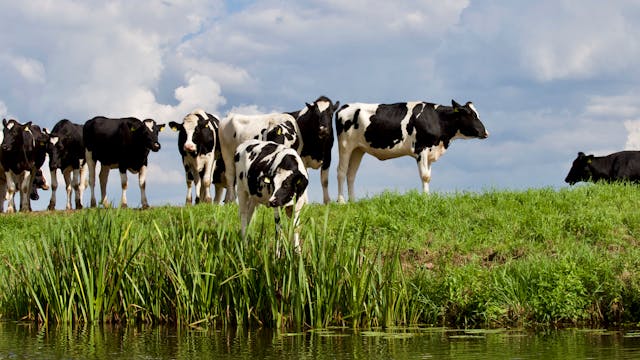
December 25, 2024
Cattle TB & People
You may have been following the story of Bovine Tuberculosis (TB) in the media this week. This disease has been with us for a long time, and is always contentious. The current furore surrounds attempts to control TB, and it is an emotive issue. A major part of the job of a country vet in Lecale is helping to facilitate the government’s TB eradication scheme in cattle. This involves at least annual testing of all cows in the national herd to see if they have TB. It requires a major organisational effort on the part of both farmers and vets and not inconsiderable expense to the public purse. In this week’s article, I would like to explore the reasons as to why we resort to such measures to control this disease.
TB is caused by bacteria called mycobacterium. There are several types. The main cause of TB in humans is Mycobacterium Tuberculosis. However the main strain of TB in cattle is Mycobacterium Bovis. The reason that we are concerned about the cattle TB strain is that it used to be a major cause of tuberculosis in people. In fact this only changed after the development of pasteurisation of milk. Prior to pasteurisation, milk was a transmitter of TB from cows to people. Many famous people have been infected, and died with TB in the past. You may recognise names as diverse as George Orwell, the author of “Animal Farm”, Frederic Chopin, the composer and Sir Walter Scott, the Scottish romanticist. Of course, many hundreds of thousands of ordinary folk died in miserable circumstances of this disease too. It robs the sufferer of their breath, causing distress and wasting of the body. For this reason it was known historically as consumption.
So why do we care now? You may think that pasteurisation has solved all of our problems. Indeed, it has helped reduce the infection of TB from cattle to people. However, studies have indicated that Mycobacterium Tuberculosis was the number one infectious cause of death worldwide in 2018. So TB is still a major threat to public health. As a society we do not want to see a recurrence of this disease in transmission from cattle to people. We want to do all we can to ensure that this will not happen again. The TB control programme is a part of this effort by society to protect ourselves. Cattle TB can be spread in unpasteurised milk. It is also thought to spread in the breath of an infected animal. So vets have to be ever vigilant against its recurrence.
There is another reason to support the TB control program. It is a vital element in ensuring public confidence in the supply of animal products from our farms. Because we have a rigorous testing programme, various countries will import our agricultural products. This underpins thousands of local jobs, ensuring prosperity in our rural communities. Without a TB control programme, it would be harder to export our excellent produce.
TB has been with us for thousands of years. It has even been found in Egyptian mummies! So it is not going to go away overnight. The future of TB control seems to be in improved testing and preventing spread. We have seen how improved hygiene and social distancing has reduced spikes in the COVID-19 pandemic, perhaps a similar approach is required with TB. Vaccination may also play a role, and we will explore this and other control methods in a future article.

